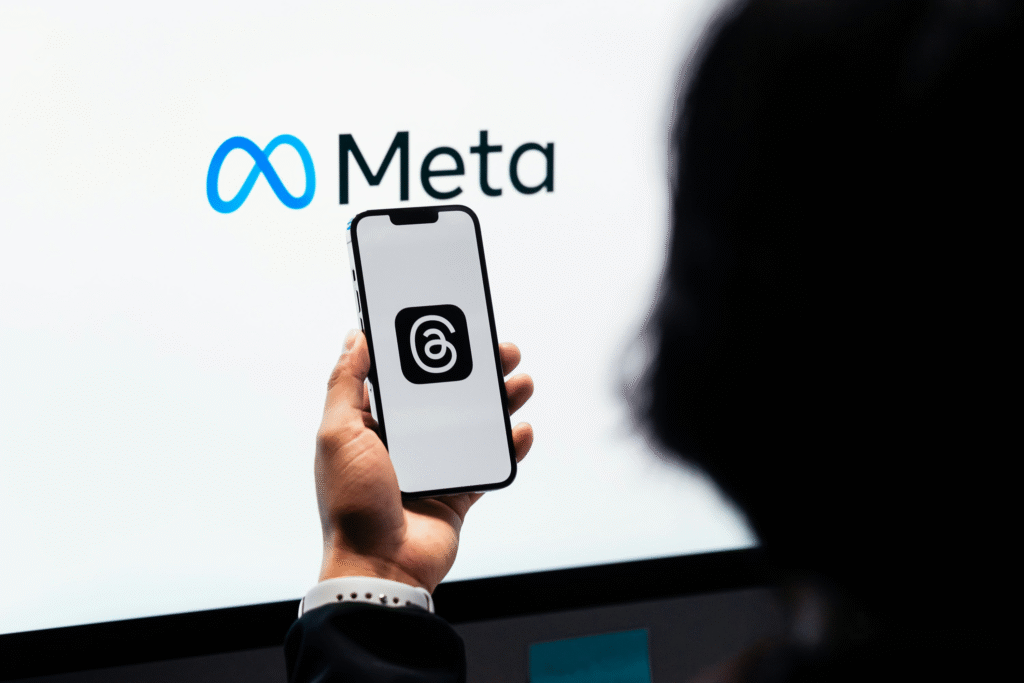As new claims come to light regarding how the firm may have tracked the internet behavior of Android users without their permission, Meta is once again under a lot of global attention. The debate over privacy and technology has been going on for years, but this new wave of worry has brought the issue back into the public eye. It has raised new questions about how far big companies should go when collecting data and whether users really understand the trade-off between convenience and digital surveillance.
The claims come from multinational academics who found what they call a hidden mechanism in Meta‘s systems. The study found that this approach let Meta keep an eye on Android customers’ web behavior even when they weren’t using the company’s apps. A lot of people find it very scary that a tech business may follow a user’s movements across different websites or digital places without their permission. This is especially true in a world where cellphones have become extensions of our identities. It also makes the already complicated connection between users and the sites they use every day even more uncomfortable.
The global situation around data privacy legislation makes the matter much more sensitive. The General Data Protection Regulation, the ePrivacy Directive, the Digital Markets Act, and the Digital Services Act are just a few of the frameworks that the European Union has used to enforce some of the tightest rules in the world over the past ten years. These regulations were made to stop firms from collecting data without permission, make them be honest about how they handle privacy, and make sure that people are still in charge of their own information. When research shows that a corporation may have gotten around that goal, it seems sense to wonder if the rules we have now are enough to keep big web platforms in check.

Meta didn’t say anything right away about the accusations. People typically feel more uneasy when a corporation of this size doesn’t say anything. People want to know what’s going on, especially when their private information might have been implicated. Even people who typically don’t mind Big Tech‘s behaviors stop and think when they hear that their browsing history or daily digital behavior could have been quietly watched. Digital weariness has rendered many people indifferent to privacy pop-ups and monitoring notifications over time, but worries like this remind us of what is at stake behind layers of ease.
For years, there has been more and more tension between governments and digital businesses. Some of this conflict stems from the idea that platforms have too much control over digital lives. Another component comes from political arguments about how strict the rules should be for these businesses. In the past, well-known American CEOs have spoken out against tight European privacy laws, saying that they hurt innovation or unfairly target US companies. Many lawmakers and privacy advocates, on the other hand, think that these kinds of rules are necessary to keep people feeling safe online. When data may be collected in large amounts without anyone knowing, personal freedom is at risk.
This event has brought a new level to the debates that were already going on. If there were a way to watch Android users’ actions without their agreement, it would be a serious breach of trust. Trust is what makes every social network work. On apps like Facebook and Instagram, people share their thoughts, memories, places, and even intimate chats. They don’t often stop to think about how much of their life is being gathered, processed, or stored behind the scenes. Users think that the rules that govern these platforms keep them safe and that firms will obey those standards in good faith.
But when research shows that anything might have happened outside of those limits, it makes you think again. The subject shifts from corporate policy to human dignity. No one wants to feel like they’re being watched. Nobody wants to be just a bunch of data points about how they act. And no one wants to find out after the fact that consent may have been implied when it should have been apparent.
This is also a reminder that rules only work when they are always followed. Technology changes swiftly. You don’t anticipate loopholes to show up. Companies add new features, change algorithms, rebuild codebases, and add tracking systems faster than most oversight agencies can check them. It’s often quite easy to figure out who anonymous data belongs to. Telemetry that is said to be harmless can start to cross into areas that feel obtrusive. Many experts agree that this is why technical transparency is no longer a choice; it is a duty at the heart of ethical innovation.
Even among the general population, responses are frequently varied. Some people are upset by the prospect of being tracked all the time and want regulators to make penalties for breaking the rules harsher. Some people don’t care because they think privacy is already gone in the current society. A whole generation grew up online and learned to give up personal information in exchange for smooth digital experiences. But even among younger users, there is a rising sense that something is wrong when limits aren’t obvious or when platforms act in ways that seem purposefully confusing.
The larger question that comes up in debates like these is simple but deep: how can we find a balance between the ease of using strong digital tools and the necessity for personal freedom? There is no denying that Meta has power. Billions of people use its platforms to talk to each other, have fun, and connect. The company has changed how people all around the world engage. But power must come with accountability. When trust goes down, even the most popular platforms could lose the public’s faith.
One thing is evident as the talks go on. The future of digital life will rely on how safe people feel. People will keep using the digital environment if they think organizations are honest, polite, and conscientious. If not, there will be increasing demand for stronger legislation, harsher punishments, and more thorough investigations.








